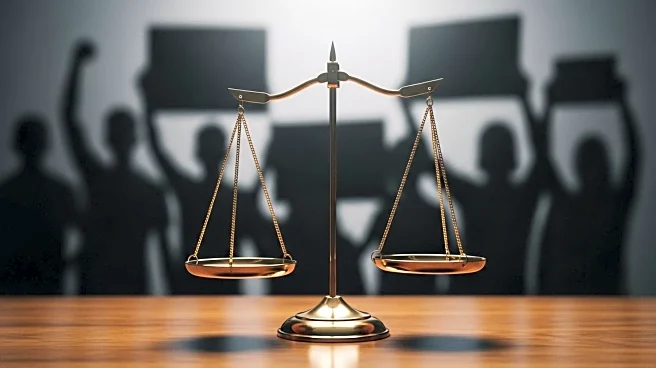What's Happening?
Chicago has been the center of significant immigration enforcement activities under President Trump's administration. The ongoing crackdown, known as 'Operation Midway Blitz,' has resulted in 400 arrests, including the detention of a U.S. citizen in Elgin. This has led to protests and rallies organized by students against U.S. Immigration and Customs Enforcement (ICE). Local leaders are advising undocumented immigrants to remain indoors to avoid detention. President Trump has also threatened to deploy the National Guard to Chicago, a move opposed by Illinois Governor JB Pritzker.
Why It's Important?
The immigration enforcement actions have heightened tensions in Chicago, affecting community relations and sparking widespread protests. The crackdown has significant implications for immigrant communities, potentially leading to increased fear and uncertainty. The threat to deploy the National Guard could escalate tensions further, impacting public safety and civil liberties. The situation reflects broader national debates on immigration policy and enforcement under President Trump's administration.
What's Next?
Continued protests and community actions are expected as local leaders and activists respond to the enforcement measures. Legal challenges may arise as individuals and organizations seek to protect immigrant rights. The political landscape in Illinois could be influenced by these developments, with potential implications for upcoming elections and policy decisions. Stakeholders, including government officials and advocacy groups, will likely engage in discussions on immigration reform and enforcement practices.
Beyond the Headlines
The crackdown raises ethical questions about the treatment of immigrants and the balance between enforcement and human rights. It also highlights the cultural and social dynamics in Chicago, a city with a diverse immigrant population. The situation may prompt broader discussions on the role of federal and state authorities in immigration enforcement.










